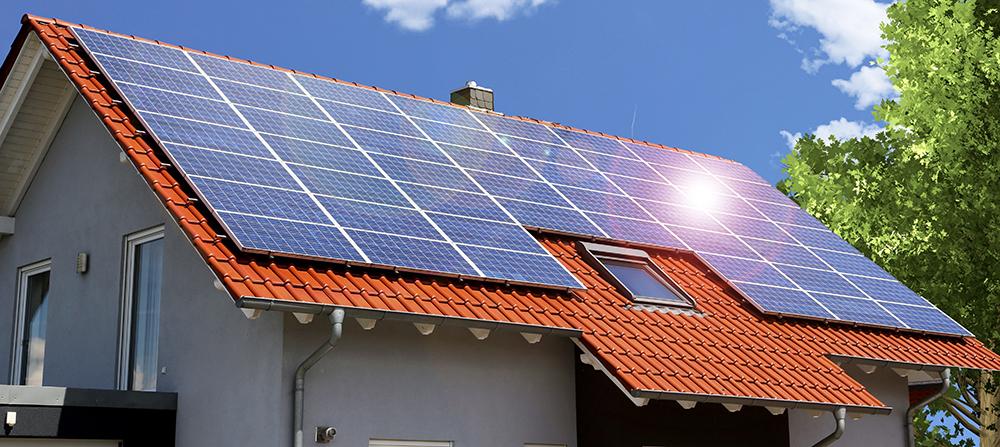Rooftop solar is becoming a more popular choice for people who want to reduce their carbon footprint and save money on electricity. But rooftop solar has its own set of challenges that you need to be aware of before making the decision. In this blog post, we will discuss some tips and tricks that can help you get the most out of your rooftop solar installation!
Find Out If Your Roof Is Appropriate For Solar Installation
- Undamaged (you can’t make any repairs before)
- At least two feet above anything that surrounds it such as trees, chimneys, etc.
- Offset from vents or other equipment so they won’t interfere with each other
- Able to support the weight of the system (most asphalt shingles are good up to around 20 pounds per square foot while metal roofs do not have a limit)
If you’re not sure if your roof is appropriate for solar, don’t worry! You can hire an expert to inspect it and give you a detailed report. If the inspection turns out that your roof isn’t right for the system, you’ll save both time and money (and we all know how important those are!). Once you’ve found an appropriate site for the installation, it’s best that you speak with your contractor about what will be required in terms of complete roofing solutions. They should already have some suppliers in mind who they work with frequently on larger or commercial projects.
System Specifications
There are many types of panels available to homeowners and deciding which one is right for you can be complicated. In fact, there may be so many choices that you may feel overwhelmed by them. To make sure you don’t end up with the wrong system, its best that you contact a trusted solar installer or contractor who can help you navigate the various options available.
Get Multiple Quotes
You should never just rely on one quote when installing rooftop solar, even if it does come from your trusted family member or friend. You will need to find out how much other companies are willing to install similar systems for in order to know if you’re getting a fair deal and not overpaying. Also keep in mind that solar panels cost more money now than they did several years ago so prices may have changed since then as well!
Consider Government Rebates and Incentives
Finally, it’s important that you look into any possible rebates from the state or federal government for installing rooftop solar panels. Incentives like these often make going solar much more affordable and allow you to significantly reduce your carbon footprint. There are other types of incentives that have been popping up recently as well such as financing options which allow homeowners to pay for their system slowly over time without having to pay any upfront costs! This makes rooftop solar even more accessible for people who may be short on cash but still want to do their part for the environment and save money.
Know The Potential Savings You Could See With Rooftop Solar
Rooftop solar costs have fallen dramatically over the last several years, making it more affordable than ever for homeowners to buy into green energy and make a significant impact in their daily lives. Just how much money can you expect to save with rooftop solar? Well that obviously depends on many factors, but here are some helpful numbers from Energy My Way:
- The average US household spends $110 per month on electricity bills
- The average US household receives around 12 hours of sunlight per day
- With an average savings of about 7-10% on your monthly bill by going solar (that’s half the national average!), you stand to save around $16-$20 every single month!
As you can see, going solar can have a huge impact on your bills and will allow you to put more money back into your wallet each month. If you’re not sure if your roof is appropriate for solar, don’t worry! You can hire Solar Panels Perth experts to inspect it and give you a detailed report.
Research the best solar panels for your home
You need to do extensive research when choosing your solar panels. This is because you will need to buy the best ones for your home if you want them to work effectively and efficiently. In order to help you out, this article has a list of all the different types that are available, as well as some other important information that should be taken into account when picking these up:
Types of Solar Panels
There are many different types of solar panels that can be bought for homes. They all function in slightly different ways and have their own benefits which homeowners should take into consideration before making a final decision about what they want to purchase. Here is a list of all of the most popular kinds with an explanation about how each one works:
- Monocrystalline Solar Panels – This kind of panel is made from a single crystal. They are known to have an 18% efficiency rating and produce less waste than other kinds. These are usually the most expensive option out there, but they do provide homeowners with a lot of value for their money if they plan on running their solar system for a long time/many years.
- Polycrystalline Solar Panels – Just like monocrystalline panels, polycrystalline solar cells are composed of multiple crystals which all come together to form one single unit. These have an efficiency rating between 16-17%, but tend to be cheaper than monocrystallines because more material is being used when they’re made (this can also result in them being heavier which can cause problems with installing them for some homeowners).
- Thin Film Solar Cells – Thin film solar cells are made using a different type of technology than the other kinds listed here. They are much lighter and cheaper but they rely on sunlight to function so they don’t perform well during cloudy weather or days when it’s raining. These have an efficiency rating of around 10%.
- Copper Indium Gallium Selenide (CIGS) Panels – CIGS panels use a special kind of semiconductor material to create electricity, which means that these require less silicon that the other types do in order to work properly. They aren’t as efficient as the others listed here, but they do have a good lifespan and are cheaper to purchase. They’re much more vulnerable to damage than most other types of panel too.
- Dye Sensitized Solar Cells – These solar cells are made with an ultra-thin layer of dye over the semiconductor material that is used for creating energy. They work in a slightly different way than all of the other panels because they require sunlight as well as heat in order to function properly. This kind has an efficiency rating of around 9% and they tend to be expensive as well.



